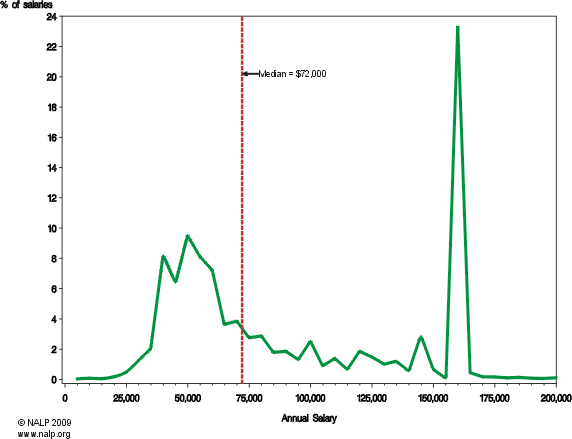 Is law school a good investment?
Is law school a good investment?Not according to a new research paper entitled, “Mamas, Don’t Let Your Babies Grow Up to Be…Lawyers.”Read the paper here. [PDF]
The paper tries to measure the return on investment in a law school education, using three prototypical students (the “Also Ran,” the “Solid Performer” and the “Hot Prospect”; more details here). The results are somewhat disheartening, especially considering the surging interest in law school during this tough job market.
While I would probably take some different approaches if I were to do this type of analysis, I applaud Schlunk's (the author) analysis including tax effects (looking at after-tax rather than pre-tax income for determining opportunity cost), and differentiating between different types of students. I think he overestimates the probabilities of students landing jobs with BigLaw, though. Even at the very top schools, only 60 to 70 percent of graduates go on to work for BigLaw. (Far below the 90% Schlunk assumes -- and many of these do not stay in BigLaw for more than a few years.) The percentage quickly drops after getting outside the top 14 or so law schools. (For example, GMU only had 12% of their grads go to NLJ 250 law firms in 2005.)
Below is a graph of the distribution of starting salaries for the class of 2008. It is a bimodal distribution with only a minority of the salaries reaching levels that would make the expected law school payoff financially worthwhile. I suspect very few students enter law school expecting to start below the median salary depicted here... but 50% of them do.

To quote myself from an earlier post, here is how I would approach analyzing the expected value of attending law school:
There is enough interest in Schlunk's paper, I wonder what the chances would be of getting this type of analysis published in a law review somewhere?To get a much better feel for how well law school really pays off, I'd love to put together an agent-based model or program a Monte Carlo Simulation to account for undergraduate major, law school ranking (top 14 vs. lower ranked schools), law school grades, tuition rates, etc. Either technique should yield a distribution of likely outcomes that would be much more informative than looking at averages. Another important piece of information to take into effect is expected number of hours worked. Is a legal job that pays $100,00/year but requires 60-70 hours of work per week really better compensated than an engineering job that pays $75,000/year but only requires 40-50 hours per week?
My expectation is that law school is only worthwhile if you have below average expected earnings with your undergraduate degree, go to a top-14 law school, and/or are in the top 10-20% of your class.
It might be strange coming from a guy who has an MBA and is now working on his JD and PhD, but if you're looking to maximize your finances, focus on choosing a lucrative undergraduate major such as engineering or economics and consider bypassing professional/graduate school altogether.
Personally, I have no regrets about coming back to school for my PhD, but from a wealth maximization standpoint, it will likely prove to be counterproductive in the long run. (The good news is that I realized that before coming in.) There are many reasons to pursue higher education besides financial. But if you're considering it for the money, there are probably better avenues you could take.
(HT Jeremy Horpedahl)
No comments:
Post a Comment